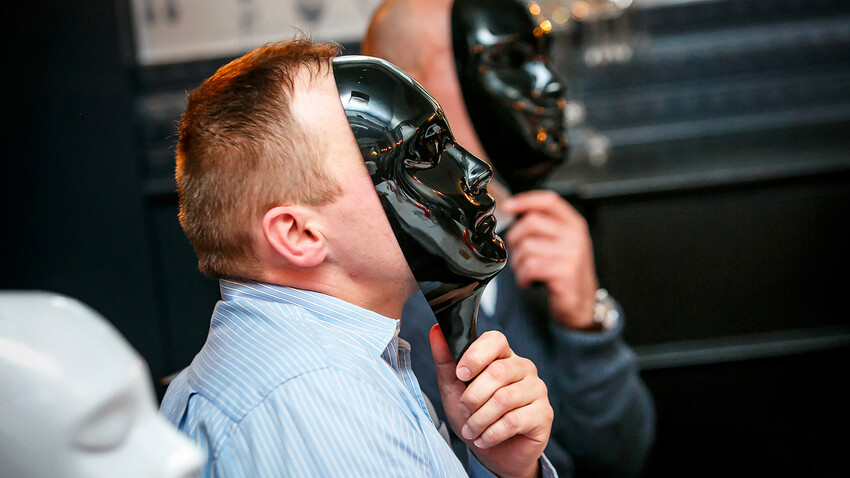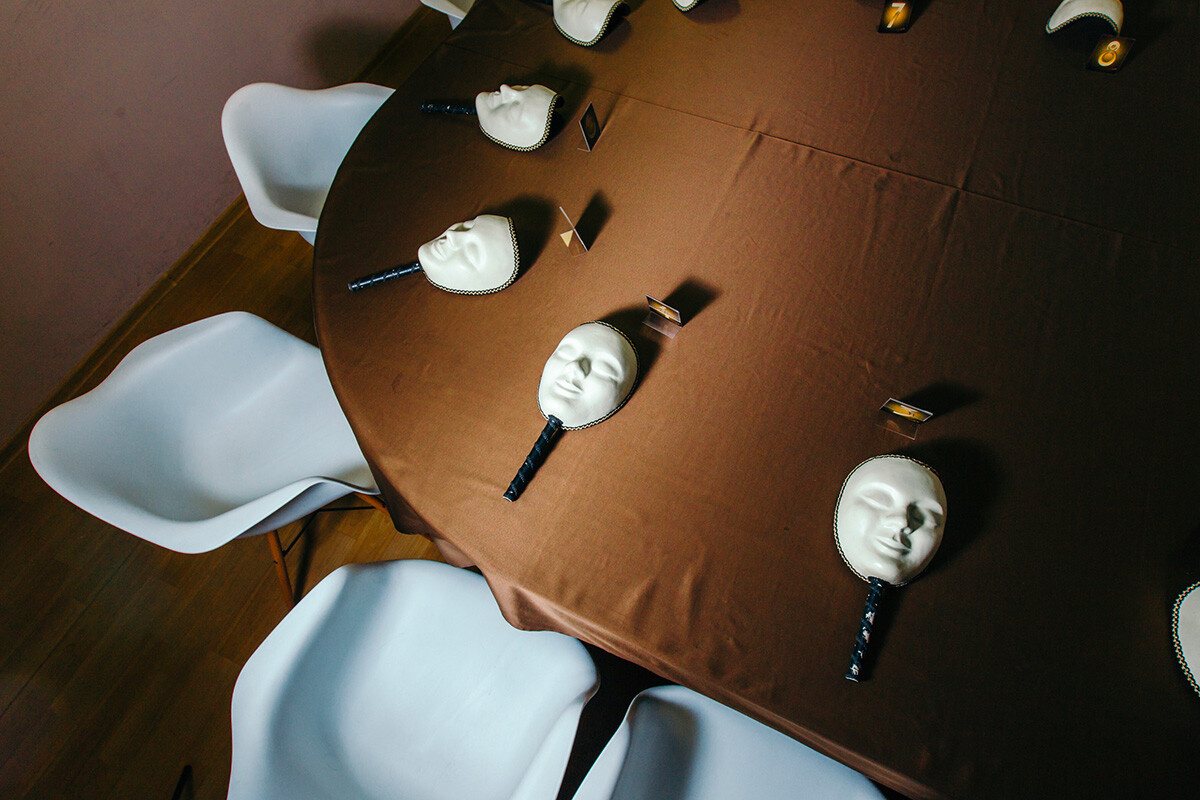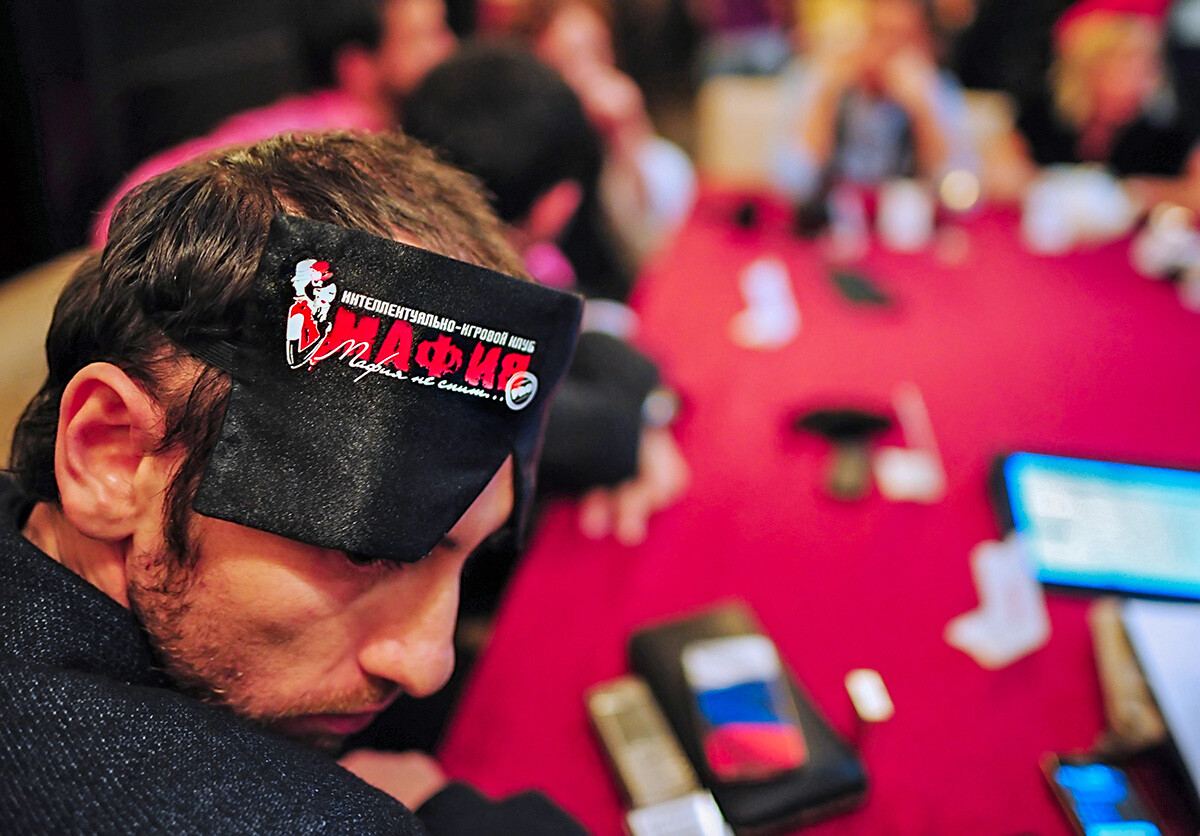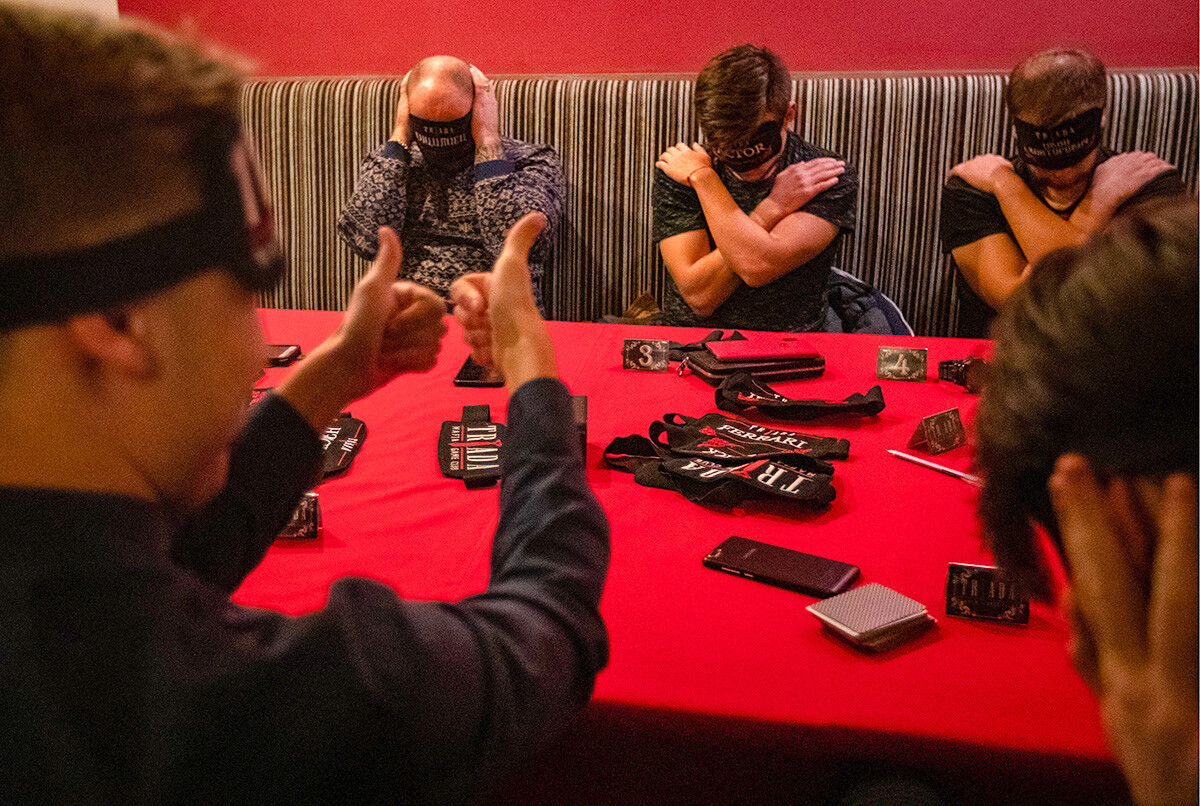

The result is something between poker and preferans: players who don't know who is who until the very end have to simultaneously "keep face" and calculate their moves ahead of time. The initial scenario of the game is as follows: the ‘townspeople’ declare war on the ‘mafia’ and the ‘mafia’responds with a vendetta. In other words, the informed minority opposes the unorganized majority.
At the very beginning, the host hands out cards to everyone: this is how the players find out which clique they belong to, but they do not tell anyone. Game time is divided into two parts. ‘Night’, when ‘mafiosi’ silently get acquainted with each other and agree by gestures on the next actions - “murders”. And ‘day’ - at this stage, the "honest citizens of the city" try to figure out in discussions who the ‘mafia’ is and vote out the most suspicious one, who then has to leave the game. This continues until one side “destroys” the other: either by exposing the ‘mafia’ or by eliminating the ‘civilians’.
On the wave of the popularity of mafia movies - just at that time, the Italian series ‘Octopus’ (‘La Piovra’) was being shown in Russia about Police Commissioner Corrado Cattani, who fought the Sicilian mafia - the development of Davidov became a real hit. A "kinship" with ‘The Godfather’ also gave it peculiar charm. The words of Don Vito Corleone could be used as a motto: "Never show outsiders what is on your mind. Never reveal your cards to strangers."

Literally a few years later, Davydov's idea was already making waves in Europe and the United States: former students leaving Russia taught their colleagues in new countries. And there, the local "mafiosi" passed on their knowledge to newcomers. The inventor himself said that already in 1991 in the U.S. he met people playing ‘Mafia’, who were told about it by complete strangers.
One after another, new varieties of the game began to appear. For example, in the ‘sports’ version,strictly 10 people participate, the ‘mafia’ only once a game agree on who their victims will be and theplayer’s status is not disclosed, even if they are "killed".
The ‘city’ version can have any number of participants, with those eliminated from the game having to declassify their status.
The game was played with blindfolds or with masks, with national colors or with fairy tale characters (for example elves, ghouls and werewolves) and with additional characters - there were many versions.
The game was everywhere - in theme clubs and on Playstation, in board games and online. Even entire‘mafia’ federations and championships appeared.

It also turned out that ‘Mafia’ can be a great simulator for people in professions where you need to pay attention to details and calculate strategy. For example, for law enforcement officers or future jurors. In the late 1990s, the Kaliningrad Higher School of the Ministry of Internal Affairs developed a manual for students of a course on visual psychodiagnostics to improve their body language reading skills based on ‘Mafia’ and a similar game called ‘Killer’.
Davydov's invention also proved useful for businessmen, who began to use it as a simulator for successful negotiations and working in stressful situations.
Dear readers,
Our website and social media accounts are under threat of being restricted or banned, due to the current circumstances. So, to keep up with our latest content, simply do the following:
If using any of Russia Beyond's content, partly or in full, always provide an active hyperlink to the original material.
Subscribe
to our newsletter!
Get the week's best stories straight to your inbox